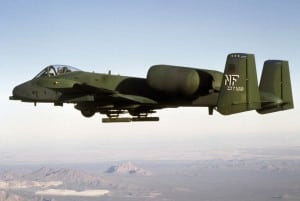
The Air Force will officially end its alternative fuel certification efforts in two to three weeks when the service’s biofuels czar is reassigned to another program. Air Force Alternative Fuels Certification Division (AFCD) chief Jeff Braun told Defense Daily through a spokesman last week the division had been unsuccessful at securing additional funding to continue certification efforts, he said, likely due to current budget tightening. The A-10 was used by the Air Force in 2012 to affirm Alcohol-to-Jet (ATJ) fuel as…













